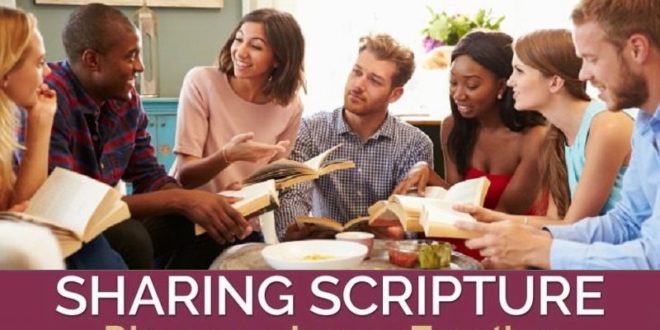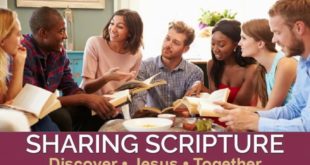Love Is the Fulfillment of the Law
While a high school student, Denis Estimon noticed that some of the 3,400 students who filled the Boca Raton Community High School courtyard ate lunch alone, and he decided to change that.
By encouraging friends to join him, a movement was born.
One student quit the football team in order to meet students over lunch. He said getting to know students and sharing the message that ‘you matter’ was more important to him than a football scholarship.
And the movement continues expanding.
In an interview on Steve Hartman’s Kindness 101: Inclusion, Estimon articulated how what started in a high school cafeteria is now in over 2,000 counties.
“The child that came to this country not being able to speak the language has now spoken all across the U.S.,” shared Denis Estimon, a Haitian immigrant and founder of the ‘We Dine Together’ movement.
Hartman then commented that people also get left out in adult life. Agreeing, Estimon summed up the interview by saying, “Whether you are 16 or 60, we have a responsibility to one another.”
Realizing that responsibility, we must look for tangible ways to positively impact the lives of others.
Choosing the ways of mercy, justice, and grace may not always be popular. How do the choices made through the items we purchase, the people with whom we associate, and the candidates and measures we support reveal our true beliefs? Is it possible to sometimes have a disconnect between what we know our philosophies ought to be and what we select?
Each of the passages in this week’s Sharing Scripture reveal not just the importance of God’s Law, but the application of that Law in our lives and in our actions.
God makes it implicitly clear what should be important to us. Our love for our God, our Creator and Redeemer, must result in love flowing out to the people around us. It should flow to those who are easy to love and especially to those who may seem unlovable or undeserving, those society may have marginalized, those whose actions and choices seem diverse from ours.
It might have been easier for Denis Estimon to continue eating lunch the way he always had, but his desire to include everyone continues to make a difference in the lives of thousands of individuals. He believed that no one should be left alone. No one should experience social isolation.
Like Estimon, we have a responsibility. The way we live must echo this message – to love, to show mercy, and to seek justice.
For Reflection
Connecting: What three words come to mind when you hear the words, “God’s Law?” Are they words of liberty, condemnation, love, restriction, guidance, or other descriptors? Share how you have come to look upon God’s Law as you have grown as a Christian.
Sharing: When reading Exodus 20:1-17, it may become clear that God’s Law is shared with us for which of the following reasons? How do those commandments influence how we relate to the people around us? To the world?
- As we see what is important to God, we can better relate to both God and to those around us.
- We can monitor the behavior of those around us to see if they are “measuring up” to God’s expectations.
- We can better understand the principles that reveal how God relates to us.
- We should be concerned and keep a checklist of exactly how we are behaving.
- We can learn more about loving the way God loves us.
- Other:
Applying: When you think about God’s Law, does it seem restrictive, freeing, or revealing? In studying James 2:1-9, what application do you find for the way you treat the daily occurrences in your life? Ask God to reveal ways in which you can apply what you have learned in this passage.
Valuing: How can choosing to pattern your life with the principles of God’s Law found in Exodus 20:1-17 lead you to follow the values of, “justice and mercy and faithfulness,” talked about in Matthew 23:23-24?
~ Joy Veverka
|
| We at the Center for Creative Ministry humbly request your prayers for improved health and a lifted spirit for one of our team members.
Thank you and God bless you! |
The Center for Creative Ministry is fully recognized by the North American Division (NAD) of the Seventh-day Adventist Church; it is also a 501c3 nonprofit organization which makes donations tax deductible in the U.S.
 Center for Creative Ministry A research organization and research center for Seventh-day Adventist pastors and their congregations
Center for Creative Ministry A research organization and research center for Seventh-day Adventist pastors and their congregations


